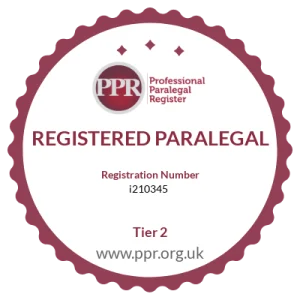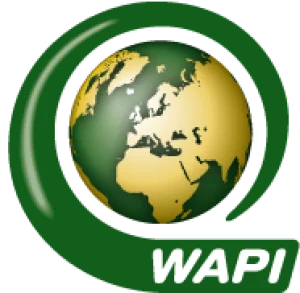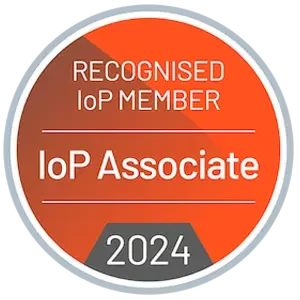When a family law case crosses international borders, one of the most complicated steps is ensuring that the other party is properly notified. Divorce proceedings, custody disputes, child support claims, and adoption cases often involve individuals living in different countries. In such situations, the Hague Service Convention becomes the primary mechanism for serving legal documents abroad.
The Hague Convention on the Service Abroad of Judicial and Extrajudicial Documents in Civil or Commercial Matters, commonly referred to as the Hague Service Convention, was created to provide a reliable, uniform, and legally recognized system for serving documents internationally. For family law cases, this treaty is especially critical. Improper service can delay proceedings, undermine parental rights, or render court judgments unenforceable in foreign jurisdictions.
This article explains how the Hague Service of Process works for family law cases, the types of documents it covers, the challenges it presents, and how professional international process servers can help ensure compliance and success.
What Is the Hague Service Convention?
The Hague Service Convention was adopted in 1965 to simplify and standardize the international service of process. Today, more than 70 countries are parties to the treaty, including the United States, most of Europe, and many other jurisdictions worldwide.
Under this framework, countries designate a Central Authority that handles incoming service requests from abroad. Instead of relying on diplomatic channels or uncertain mailing systems, the Hague Convention ensures that documents are transmitted directly to the Central Authority of the receiving state, which then oversees service according to its domestic laws.
For family law cases, this treaty is vital. Whether it’s serving divorce papers on a spouse living overseas, delivering custody orders to a parent abroad, or notifying an ex-partner of child support enforcement actions, the Hague Service Convention provides the legal foundation to ensure that service is valid and recognized by courts on both sides.
Why Proper Service Matters in Family Law
Family law disputes often involve deeply personal and sensitive issues—marriage dissolution, parental rights, child welfare, and financial obligations. Because of the stakes, courts demand strict compliance with rules governing service of process.
If documents are not properly served:
-
Delays: Court proceedings may be postponed or dismissed until proper service is confirmed.
-
Enforceability Issues: A judgment obtained without proper service may not be recognized or enforced in another country.
-
Unfairness Claims: The recipient may argue that they were not properly notified, which can lead to appeals or retrials.
Consider a custody dispute: if one parent lives in the United States and the other in France, serving custody papers through the Hague Service Convention ensures both parties are officially notified and the resulting judgment is enforceable in both jurisdictions. Without Hague-compliant service, the judgment might be challenged abroad.
Types of Family Law Documents Served Under Hague Convention
Family law encompasses a wide range of legal disputes. Many of these require cross-border service of process, including:
-
Divorce Petitions and Decrees: When one spouse lives abroad, initiating or finalizing divorce proceedings requires Hague-compliant service.
-
Child Custody Orders: Custody disputes often cross borders, particularly when parents live in different countries. Hague service ensures both parents have proper notice.
-
Child Support and Spousal Support Orders: Enforcement of financial obligations often depends on proper service in the respondent’s country.
-
Adoption-Related Documents: In cases involving international adoptions, service of process ensures transparency and compliance with both domestic and foreign laws.
-
Restraining Orders and Protective Orders: In situations involving domestic violence or child endangerment, courts may require that protective orders be served internationally under the Hague Convention.
By covering this wide spectrum of documents, the Hague Convention ensures that family law judgments carry international legitimacy.
Step-by-Step Process of Hague Service for Family Law Cases
Serving family law documents through the Hague Convention typically follows a structured process:
-
Confirm Hague Membership
-
Both the requesting country and the destination country must be signatories to the Hague Service Convention. If not, alternative methods such as Letters Rogatory must be used.
-
-
Prepare the Request
-
The requesting party must complete the Hague Service Request Form (USM-94 in the United States). Accuracy is essential—errors can lead to rejection or delays.
-
-
Translate Documents
-
Many countries require translations into their official language. For example, France requires French, Germany requires German, and Spain requires Spanish. In family law cases, failure to provide certified translations is one of the most common reasons for rejection.
-
-
Submit to Central Authority
-
The documents are sent to the Central Authority of the destination country. The Central Authority is responsible for reviewing, approving, and executing service according to its national laws.
-
-
Service of Documents
-
The Central Authority arranges for service, often by a judicial officer, bailiff, or local process server authorized under domestic law.
-
-
Certificate of Service
-
Once completed, the Central Authority issues a certificate confirming the date, manner, and recipient of service. This certificate is essential proof of compliance in court.
-
Timeline: Service typically takes 2–6 months, though timelines vary widely depending on the efficiency of the Central Authority and the complexity of the case.
Challenges in Serving Family Law Documents Abroad
While the Hague Convention provides a framework, several challenges can complicate service in family law cases:
-
Translation Requirements: Countries often demand certified translations of all documents. Even minor errors in translation can invalidate service.
-
Different Legal Systems: Each country has its own rules regarding how documents can be served, even under Hague guidelines.
-
Reservations and Objections: Some countries object to certain methods of service (e.g., postal service or direct service by private agents).
-
Backlogs and Delays: Central Authorities vary in efficiency; some process requests quickly, while others face significant backlogs.
-
High Stakes in Family Law: Custody and support cases often involve urgent timelines. Delays can affect children’s welfare or financial support.
These challenges make professional assistance critical. Errors can cause months of delay or force a case to restart entirely.
Alternatives if Hague Convention Doesn’t Apply
Not all countries are members of the Hague Service Convention. In such cases, alternatives must be used:
-
Letters Rogatory: A formal request from one country’s court to another’s judiciary. This method is slower, often taking 6–12 months, but remains the standard in non-Hague jurisdictions.
-
Informal Service of Process: In some cases, parties may agree to accept service informally (e.g., via mail or email), but courts must approve.
-
In-Country Private Process Servers: Where allowed, local process servers can deliver documents under domestic rules.
-
Alternate Court-Ordered Service: In rare cases, courts may authorize service via publication, email, or other methods when traditional service is impossible.
Understanding which option applies requires legal expertise and knowledge of international law.
Case Examples
Example 1: Divorce in France
A U.S. citizen filed for divorce against a spouse living in France. Using the Hague Service Convention, documents were translated into French, submitted through France’s Central Authority, and properly served. The U.S. court recognized service, and the resulting judgment was enforceable in France.
Example 2: Custody in Germany
In a child custody dispute involving a German parent, the U.S. petitioner served custody papers via Germany’s Central Authority. Because Germany requires German translations, the documents were certified and accepted. This ensured that the custody judgment was recognized by German courts.
These examples highlight why Hague compliance is not optional—it’s the only way to ensure enforceability across borders.
How We Help
Navigating the Hague Service of Process for family law cases can be overwhelming, especially for individuals unfamiliar with international procedures. Our company specializes in international process service and has decades of experience assisting law firms, corporations, and private clients with family law matters abroad.
Our services include:
-
Hague Service Requests: Completing and filing all required paperwork accurately.
-
Legal Translations: Arranging certified translations that meet foreign requirements.
-
Central Authority Liaison: Coordinating with authorities in destination countries.
-
Proof of Service: Ensuring valid certificates are obtained and filed with courts.
-
Global Coverage: Serving documents in Hague and non-Hague countries through Letters Rogatory or alternate methods.
-
Personalized Support: Providing guidance at every step to minimize errors and delays.
By entrusting service to experienced professionals, clients avoid costly mistakes, save time, and protect their legal rights.
Summary & Insights
International family law cases demand careful attention to the rules of service of process. The Hague Service Convention provides a structured, internationally recognized method for serving divorce papers, custody orders, child support claims, and other family law documents abroad.
However, the process is rarely simple. From translation requirements to country-specific objections, even small errors can cause major setbacks. That’s why partnering with an experienced international process service company is essential.
If you need to serve family law documents abroad, we’re here to help. Our team has extensive experience in Hague Convention procedures, Letters Rogatory, and alternative service methods, ensuring that your documents are served legally, efficiently, and reliably worldwide.
Please call Stellar Konsulting at the phone numbers listed below or email us at operations@stellarkonsulting.com for an obligation-free quote covering the timelines, options and costs for international service of process.
📞 EMEA: +44 (20) 38905643
📞 USA: +1 (213) 786 1161
📞 Asia: +92 313-780-6280
📞 UK: +44 (20) 38905643
📞 Australia, New Zealand and Far East Asia: +61 2 7259 7299



















